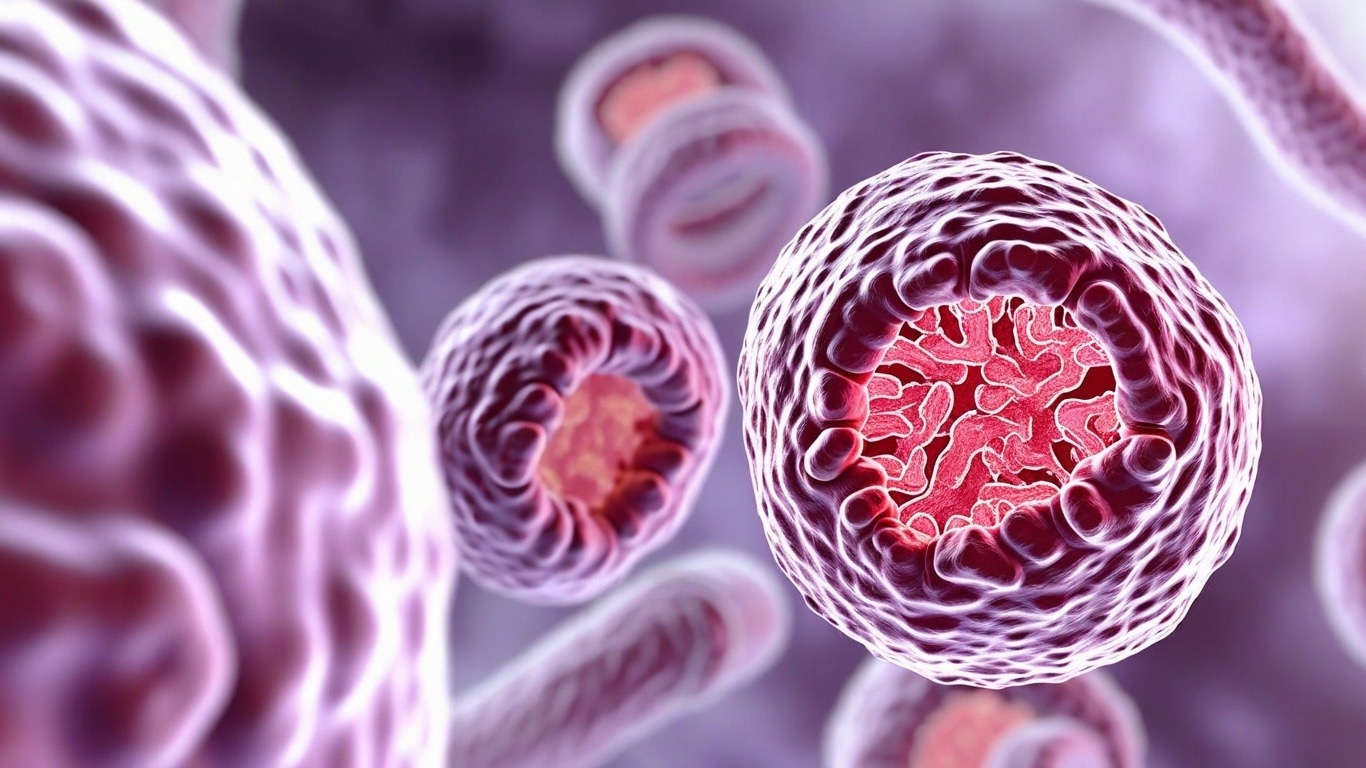Researchers develop targeted polymersomes to enhance methotrexate delivery, offering a promising new approach for treating aggressive choriocarcinoma.
 Study: ENT-1-Targeted Polymersomes to Enhance the Efficacy of Methotrexate in Choriocarcinoma Treatment. Image Credit: Shutterstock AI Generator / Shutterstock.com
Study: ENT-1-Targeted Polymersomes to Enhance the Efficacy of Methotrexate in Choriocarcinoma Treatment. Image Credit: Shutterstock AI Generator / Shutterstock.com
In a recent study published in Small Science, researchers develop targeted polymersomes loaded with methotrexate for the treatment of gestational choriocarcinoma, a rare and aggressive malignancy originating from the placenta.
What is choriocarcinoma?
Gestational choriocarcinoma is a rare and highly aggressive malignancy that originates from the trophoblastic layers of the placenta. This cancer often metastasizes through the blood stream to various organs, including the lungs, kidneys, brain, liver, breasts, bones, gastrointestinal tract, and lymph nodes.
In less severe cases of choriocarcinoma, a single dose of methotrexate or actinomycin-D is considered the first-line treatment. However, advanced-stage metastatic choriocarcinoma frequently requires multiple doses of methotrexate, with a weekly methotrexate dose between 30-50 mg/m2 associated with a success rate of up to 90% that may be accompanied by chemotherapy, radiation, and surgery.
The poor tumor specificity of methotrexate increases the risk of several severe side effects, including liver and kidney toxicity, particularly when this treatment is combined with chemotherapy. The limitations associated with methotrexate for the treatment of choriocarcinoma emphasize the need to investigate novel treatment strategies that ensure optimal delivery of methotrexate into tumors.
Improving the delivery of methotrexate through targeted polymersomes
The researchers of the current study synthesized methotrexate-loaded polymersomes, which are synthetic liposomes that resemble hollow spheres. These polymersomes consisted of an amphiphilic di-block co-polymer that maintained a hydrophilic core and a water-soluble outer layer. The high concentration of glutathione within choriocarcinoma cells reacts with the internal disulfide bonds of the polymersome to breakdown the nanocarrier and release methotrexate into the cell.
Equilibrative nucleoside transporter 1 (ENT-1) is a membrane transporter in the human placenta that is often overexpressed in choriocarcinoma cells. In the placenta, ENT-1 transports nucleosides like adenosine, which facilitates the transportation of essential nutrients from the maternal blood stream to the fetus. To enhance methotrexate delivery into the cells, the researchers investigated several potential adenosine derivates that could be used to increase binding to ENT-1.
A molecular docking analysis was performed to predict the free energy binding of 20 potential adenosine derivatives with ENT-1. To this end, 6-chloro-guanosine (Gn) was identified as the optimal ligand to bind to ENT-1 due to its high binding affinity of -8.4 kcal/mol to ENT-1. This binding affinity is achieving by Gn creating four hydrogen bonds with glutamine 159, tryptophan 30, arginine 314, and aspartate 310 residues within the binding cavity of ENT-1
Thereafter, the researchers functionalized the methotrexate-loaded polymersomes with Gn, which exhibited good stability without significantly compromising the size of the originate methotrexate-loaded polymersomes.
Validation of nanocarriers
Fluorescence imaging indicated that ENT-1 targeting increases preferential uptake and retention of polymersomes in choriocarcinoma tumors with minimal distribution in major organs. Furthermore, methotrexate-loaded polymersomes that were conjugated with Gn exhibited two-fold higher tumor accumulation as compared to non-targeted polymersomes. Nonsignificant accumulation of the polymersomes was observed in the kidneys and lungs, thus confirming the tumor specificity and preferential uptake of these polymersomes into chorciocarcinoma cells.
To evaluate the antitumor activity of these molecules, mice with JEG-3 choriocarcinoma subcutaneous tumors were treated with Gn methotrexate-loaded polymersomes, methotrexate-loaded polymersomes, or control vehicle every other day for a total of six doses, which equated to a total methotrexate dose of 10 mg/kg. Tumors obtained from mice treated with Gn-methotrexate-loaded polymersomes, methotrexate-loaded polymersomes, and free methotrexate were reduced in size by 75%, 65%, and 20%, respectively.
Mice treated with ENT-1-targeted polymersomes did not exhibit any signs of toxicity, weight loss, or mortality throughout the study.
Study significance
The current study describes the development and validation of methotrexate-loaded polymersomes targeting ENT-1. By increasing the uptake of methotrexate into tumor cells, these novel polymersomes provide significantly greater antitumor activity while also reducing methotrexate dose needed to reduce tumor sizes and its associated systemic toxicity.
The promising antitumor efficacy was primarily due to the enhanced cellular uptake of ENT-1-targeted polymersomes and the effective release of methotrexate within the tumor.”
Although additional studies are needed, this novel drug delivery system has the potential to significantly improve the treatment of highly aggressive choriocarcinoma, which currently affects about four in every 100,000 pregnancies in the United States.
Journal reference:
- Mamnoon, B., Souza, A. P. M., Korzun, T., et al. (2025). ENT-1-Targeted Polymersomes to Enhance the Efficacy of Methotrexate in Choriocarcinoma Treatment. Small Science. doi:10.1002/smsc.202400361.